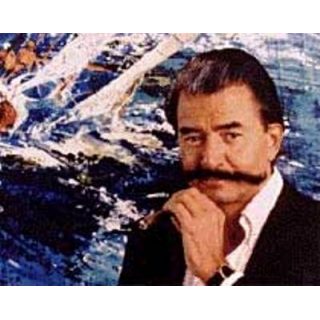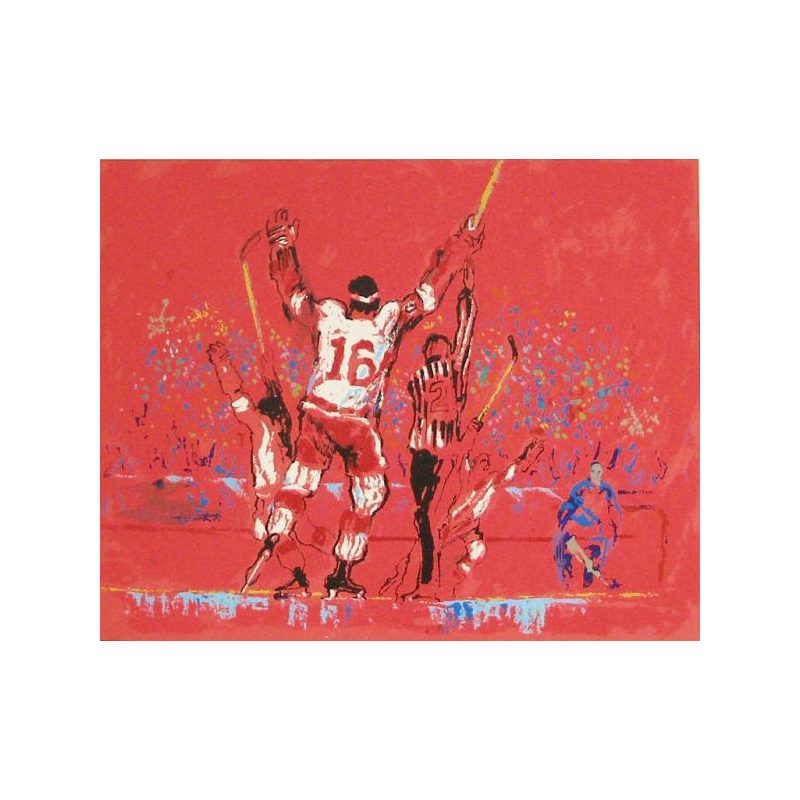
St. Paul, Minnasota United States – 1921 -2012
Commissioned in 1976 for the Olympic Games in Montreal, Neiman created images to commemorate the sport of gymnastics and swimming. He was the official artist at five Olympiads.
Best known for his brilliantly colored, stunningly energetic images of sporting events and leisure activities, LeRoy Neiman is probably the most popular living artist in the United States. The artistic style of the fabulously successful Neiman is familiar to a remarkably broad spectrum of Americans –“rich and poor, black and white, urban and rural, educated and illiterate,” and young and old alike. Millions of people have watched him at work: on ABC TV coverage of the Olympics, as CBS Superbowl computer artist, and at other major competitions, televised on location with his sketchbook and drawing materials, producing split-second records and highly developed images of what he is witnessing. “Before the camera, such reportage of history and the passing scene was one of the most important functions of painters and draftsmen of all sorts. Mr. Neiman has revived an almost lost and time-honored art form,” Carl J. Weinhardt observed in the catalog for the exhibition of Neiman’s 1972 Olympics sketches, which was mounted that year by the Indianapolis Museum of Art. In the Christian Science Monitor (May 2, 1972), Nick Seitz wrote that Neiman, who has been labeled an American Impressionist, “has the journalistic talent, as well as the artistic ability, to convey the essence of a game or contestant with great impact, from the Kentucky Derby to Wilt Chamberlain, from the America’s Cup to Muhammad Ali, from the Super Bowl to Bobby Hull.”
A teacher at the School of the Art Institute of Chicago for 10 years early in his career, after studying there, Neiman also gained wide recognition as a contributing artist for Playboy, in the 1950s. Many of his images of what he calls ” the good life,” have appeared in the form of etchings, lithographs, silkscreen prints, and sculptures as well as paintings, in the permanent collections of public and private museums and other institutions worldwide. These institutional acquisitions, along with sales of approximately 150,000 of his silkscreen prints to individuals, attest to the enormous appeal of his work.
“Whether one approves of Neiman’s work or not, one must agree that he is a work of art himself,” Stan Isaacs declared in New York Newsday (March 27, 1968), in a reference to Neiman’s colorful public persona. “I guess I created LeRoy Neiman,” the artist once said. “Nobody else told me how to do it. Well, I’m a believer in the theory that the artist is as important as his work.”
LEROY NEIMAN
Showing the single result
